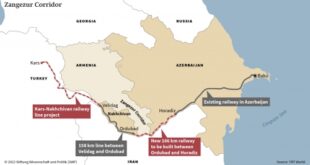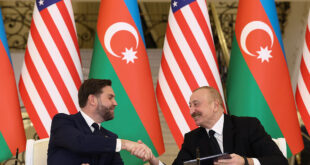 President Vladimir Putin signed a law on Friday suspending Russia’s participation in a key post-Cold War arms treaty, a move which could allow it to deploy more forces close to western Europe.Putin’s moratorium on the Conventional Forces in Europe (CFE) Treaty follows months of increasingly aggressive rhetoric directed against the West ahead of a parliamentary election on Sunday and a presidential vote next March.
President Vladimir Putin signed a law on Friday suspending Russia’s participation in a key post-Cold War arms treaty, a move which could allow it to deploy more forces close to western Europe.Putin’s moratorium on the Conventional Forces in Europe (CFE) Treaty follows months of increasingly aggressive rhetoric directed against the West ahead of a parliamentary election on Sunday and a presidential vote next March.
“President Putin signed the federal law on suspending the Conventional Forces in Europe Treaty,” the Kremlin said in a short statement. The bill was passed by parliament this month and needed the president’s signature to become law.
The United States, the European Union and NATO had urged Putin not to suspend the treaty, seen as a cornerstone of European security.
But Putin, who has sought to restore the Kremlin’s clout after the chaos which accompanied the fall of the Soviet Union, countered that NATO members had not ratified an amended version of the pact and had flexed their muscles near Russia’s borders.
The suspension, which will come into effect from Dec 12-13, would allow Moscow to boost military forces on its western and southern borders, although Russian generals have said that will not happen immediately.
Polls show that talking tough about Russia standing up to foreigners strikes a chord with millions of Russians who yearn for the Soviet Union’s once mighty superpower status.
Putin has also been sparring with the United States and European Union over plans for a missile defense shield in Europe and proposed independence for Serbia’s Kosovo province.
Signed in 1990 and updated in 1999, the CFE treaty limits the number of battle tanks, heavy artillery, combat aircraft and attack helicopters deployed and stored between the Atlantic and Russia’s Ural mountains.
It was originally negotiated among the then-22 member states of NATO and the Warsaw Pact and Russia says it is outdated.
Moscow argues it has been used by an enlarged NATO to limit Russian military movements while NATO builds up forces close to Russia in contravention of earlier agreements.
Western partners have refused to ratify an amended version of the pact until Russia pulls its forces out of Georgia and Moldova as it promised in 1999 when the treaty was reviewed.
Moscow’s key problem with the treaty are flank limits which prevent Russia from moving tanks and artillery around its own territory, Russia’s top generals say.
NATO has said it would be worrying to see large amounts of equipment limited by the treaty suddenly moving around.
But Russia’s top general, Yuri Baluyevsky, said this month said there would be no immediate movement of forces after the moratorium came into effect.
 Eurasia Press & News
Eurasia Press & News



